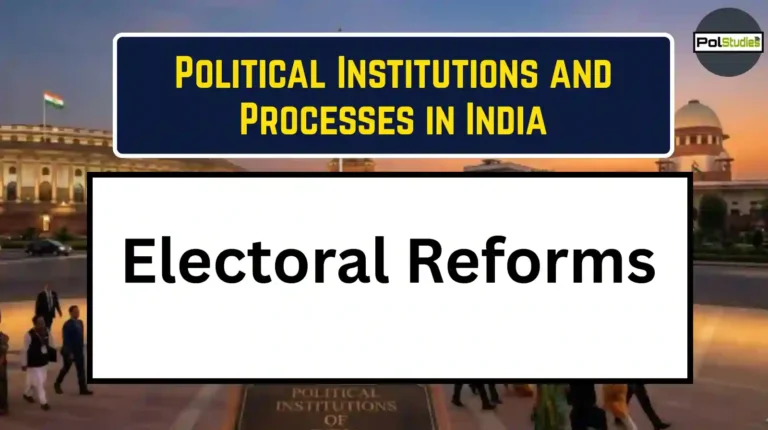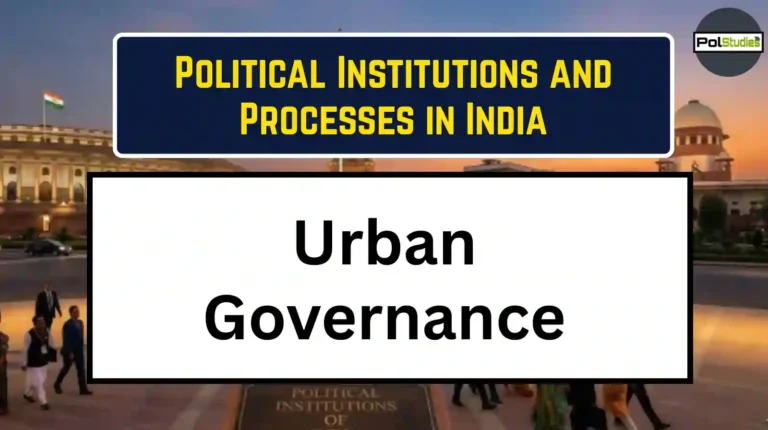Functions and Powers of the Supreme Court | Original Jurisdiction, Appellate Jurisdiction, & writs
Powers of the Supreme Court
The Federal Court has a special place in the federal constitution so that balance can be maintained and the autonomy of the supreme and center and units in their respective areas can be maintained.
There is a need for a court that can interpret the constitution, and settle disputes between the Center and the states or disputes between the states. Otherwise, there will be interference in each other’s rights and disputes will arise. There is a need to protect the fundamental rights given by the constitution so that the government does not take them away. To safeguard this, the Constitution has given a lot of powers to the Supreme Court of India.
Some writers even describe the Supreme Court of India as more powerful than the Supreme Court of America. Sri Alladi Krishna Swamy Iyer than any other Supreme Court in the world, even more than the Supreme Court of the United States of America.” The Supreme Court of India has wider jurisdiction court in any Federation of the world including the Supreme Court of the USA) India has actually been given many powers, which are known from the following things:
1. Original Jurisdiction
The Supreme Court has original jurisdiction in certain cases. That is, there are some cases that can be directly taken to the Supreme Court. The Supreme Court shall have original jurisdiction in all disputes in which:-
- dispute is between the central government and one or more states.
- Two or more states Where there is a dispute between themselves or a legal question in disputes on which a legal right depends
the Supreme Court can strike a balance between the union and the states by this right. The cases cannot be taken to any other court in India.
2. Appellate Jurisdiction
There are three types of Appellate Jurisdiction of the Supreme Court:
(i) Constitutional Jurisdiction – In constitutional matters, this Court can hear appeals only when the High Court certifies that there is no legal question worth considering. If he refuses to give such a certificate, the Supreme Court itself may grant special leave to appeal.
(ii) Civil Jurisdiction – In a civil suit, this Court can hear appeals against any judgment or final order of the High Court, if the High Court certifies that the case involves property of the value of 20,000 or more. is disputed.
But the condition of Rs 20,000 has been removed by the 30th amendment of the constitution. Now a case of any amount can come to the Supreme Court when the High Court gives a certificate that the case is fit to be heard by the Supreme Court.
(iii) Criminal Jurisdiction – In the following criminal cases, it can hear appeals:
(a) If on appeal the High Court reverses the verdict of acquittal and sentences him to death, then it will be a case of the second appeal.
(b) if any case has been taken over by the High Court and it has sentenced an offender to death.
(c) if the High Court or the Supreme Court certifies in accordance with the rules that the case is fit to be heard by the Supreme Court. But according to Article 134, there is no such provision of appeal that if the High Court issues an order to release the offender in a criminal case, then there should be an appeal to the Supreme Court.
The Constitution empowers Parliament by law to extend the appellate jurisdiction of the Supreme Court in criminal matters.
(3) Jurisdiction regarding fundamental rights
This court is the protector of freedoms and fundamental rights. According to the 32nd article, it has been given the power to issue orders or articles like:
- Habeas Corpus,
- Mandamus,
- Prohibition,
- Qua-warranto,
- Certiorari
for the enforcement of fundamental rights. The President can suspend the right to seek the assistance of the Supreme Court.
(4) Advisory Powers
According to Article 143, the President has the right to consult the Supreme Court on any matter of public importance; But according to this article it is necessary for this Court to give its opinion, nor is it necessary for the President to act according to its advice. This consultation is not a decision.
(5) Power to Review its own Decision
though the judges of the Supreme Court are jurists of high standing and they scrutinize while taking decisions in the Supreme Court, still they may have to do so sometimes. That’s why they have been given the right to review their decisions and orders. By this the wrong decisions made by them can also be modified. This right of the Supreme Court has been given because there is no higher court in the country in which an appeal can be made against it.
For example, in the case of Sajjan Singh vs. State of Rajasthan, the Supreme Court held that the Parliament can amend fundamental rights. But in 1967, in the Golaknath case, the Supreme Court had given a decision that the Parliament cannot amend the fundamental rights. In 1973, in the Kesavananda Bharti case, the Supreme Court ruled that the Parliament can amend the fundamental rights.
6. A Court of Record
The Supreme Court has also been considered a Court of Record by Article 129 of the Constitution. All its proceedings and decisions are published as memorable evidence forever and these decisions are accepted as judicial precedents for all the courts of the country.
These records are so important that their sanctity cannot be questioned, nor can other courts of the country go against these records; When a court is made a court of record by law, then such court gets the right to punish for Contempt of Court and this right has been sanctioned by the constitution.
7. Power to frame rules to regulate the activities of the Courts
to the Supreme Court Power has been given to make rules from time to time. A new sub-section has been inserted in this article by the 42nd amendment. Under this new sub-section, the Supreme Court is empowered to make rules for regulating the proceedings under Articles 131A and 138A.
8. Power regarding Transfer of Cases
A new Article 139A has been included in the Constitution by 42nd Amendment 1976. By this, the Supreme Court has been given the right that the Supreme Court can send a case from one High Court to another High Court for the purpose of speedy justice.
The Attorney General has been empowered that if he thinks fit that any matter relating to the public interest is pending in any High Court and any important legal case is involved in it, then he can pray to the Supreme Court to transfer that matter to the High Court. Should be ordered and disposed of in the Supreme Court.
Read also:- Appointment of the Chief Justice and Controversy | Qualification, Tenure, Impeachment
9. Interpretation and Protection of the Constitution
It is also the function of the Supreme Court to interpret and protect the Constitution. Whenever any difference of opinion arises regarding the interpretation of the constitution, it is interpreted by the Supreme Court and the interpretation of the Supreme Court is considered to be the final and best. According to Article 141, “The law declared by the Supreme Court shall be binding on all courts situated in the territory of India.”Court not only to interpret the Constitution but also to protect it.
supreme the law or order of the executive violates the constitution, then it can cancel that law or order by declaring it unconstitutional. The constitution is the supreme law of the country and it is the duty of the Supreme Court to protect it. Interpretation is final
10. Miscellaneous Functions
Supreme Court also has to perform the following functions:
1. The Supreme Court appoints its office bearers to carry out its functions. He makes these appointments with the help of the AAP and the Federal Public Service Commission.
2. The Supreme Court rules over the other courts of the country. It sees whether justice is being done properly in each court or not.
3. If there is any difference of opinion regarding the election of the President or the Vice-President, it is decided by the Supreme Court and its decision is final.




